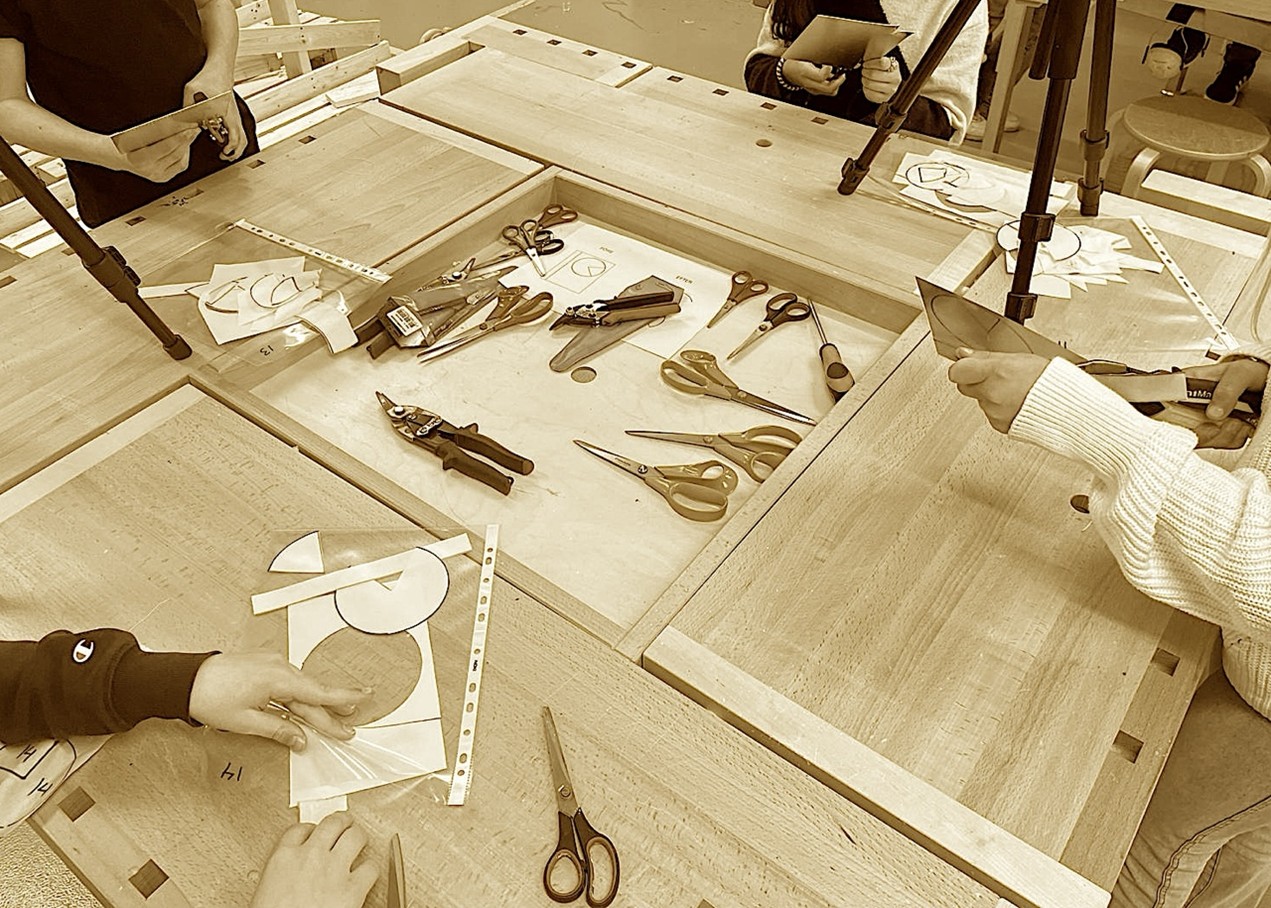Manual Dexterity in Sloyd Education - Exploring Dimensions of the Capability to Use Hand Tools and Materials Purposefully

While power tools increasingly facilitate craftwork, they may also limit children’s and students’ opportunities to develop fine motor skills, visual acuity, and, by extension, cognitive capacity. Within craft education, students are expected to learn to handle tools and materials appropriately, yet fine motor skills has held an unclear position in recent curricula. Concerns have emerged regarding a decline in young people’s manual dexterity, evidenced in tasks such as cutting along lines or operating a saw with precision.
This dissertation investigates manual dexterity in upper elementary craft education, examining how it manifests in students’ work, identifying critical aspects of specific craft knowings, and exploring how these can be addressed through instructional design. Three micro-studies were conducted with the following objects of learning: Knowing how to saw straight, how to interpret expressions in objects, and how to cut along lines. Data were generated using the Learning Study method, a collaborative approach involving both students and multiple craft teachers.
The study aims at contributing to craft education research by offering a nuanced understanding of manual literacy and manual dexterity as core knowledge domains. It further elucidates how teachers’ instructional choices shape what becomes possible for students to learn, thereby informing both curriculum development and classroom practice.
Jenny Frohagen has been a primary school teacher in Sloyd/wood and metal crafts as well as French since 2006, holding a degree from the Stockholm Institute of Education. Since 2016, she has worked with teacher education at Konstfack University of Arts, Crafts and Design. Frohagen holds a Licentiate of Philosophy (Ph.Lic.) in Educational Sciences with a specialization in practical knowledge traditions from Stockholm University. She has been engaged in teacher-led research since 2009 and has coordinated projects in practical-aesthetic subjects within the Stockholm Teaching and Learning Studies (STLS) network. She has worked at the Swedish National Agency for Education (Skolverket) with the 2011 curriculum reform, and later also contributing to the development of support materials in sloyd education.
Substudies 1 and 2 have been published as part of a licentiate thesis:
Broman, A., Frohagen, J. & Wemmenhag, J. (2013). Vad kan man när man kan tillverka ett uttryck i slöjdföremål? I Forskning om undervisning och lärande, nr 10, s. 6-28.
Frohagen, J. (2016). Att kunna såga rakt: Om manuell bildning i skolämnet slöjd. I Techne series: Research in sloyd education and crafts science. A, Vol. 23, nr 2, s. 16-33.
Main supervisor: Mia Porko-Hudd
Supervisor: Camilla Gåfvels
Admitted to: Åbo Akademi
Period: 2025 - 2027